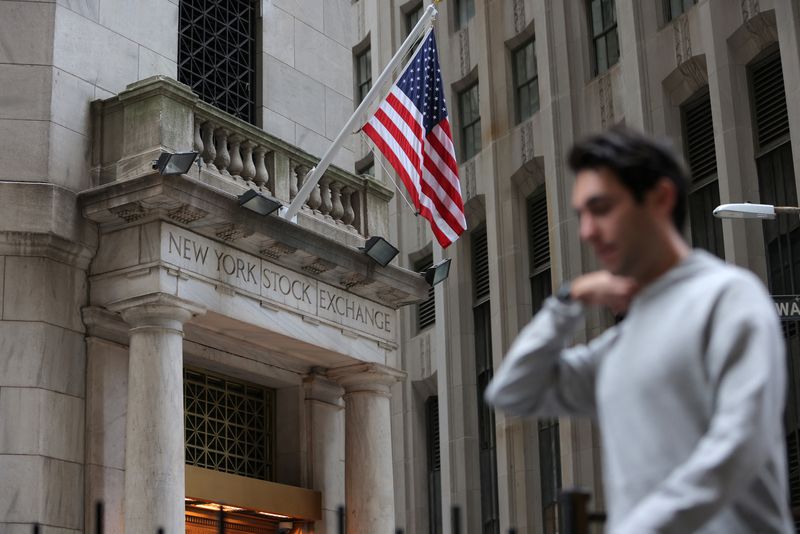Investing.com’s stocks of the week
Investing.com - US corporate credit spreads are tipped to finish the year slightly wider than their recently tight range as inflation and growth ease, according to analysts at UBS.
However, in a note to clients this week, the analysts led by James Martin suggested that President Donald Trump's plan to impose sweeping tariffs on friends and adversaries alike present the biggest risk to this outlook for credit spreads.
In particular, the harsh levies could lead to potentially "meaningful impairment of corporate profits", the analysts warned. They estimated company earnings could be dented by over 6% should Trump move ahead with his campaign promise to slap a 60% duty on Chinese imports and a 10% surcharge on the rest of the world.
Since taking office, Trump has stopped short of rolling out such draconian measures, although he has threatened Canada, Mexico, China and the European Union with a possible February 1 deadline before placing tariffs on them.
Should the tariffs come into effect, companies will see heavy margin compression, while the levies could add renewed fuel to inflation and persuade the Federal Reserve to leave interest rates elevated, the analysts flagged.
The comments come after a sell-off in US Treasury yields earlier this month placed pressure on investment-grade rated bonds, which price at a spread premium over their risk-free government debt counterparts.
Although the jump in Treasury yields, which move inversely to prices, has moderated in recent days on a cooler-than-anticipated December inflation reading, corporate credit spreads have been pressurized by elevated investor demand for debt.
Many companies have subsequently rushed to secure funding quickly and avoid a further uptick in borrowing costs, Reuters has reported, quoting analysts. Bankers estimate that between $175 billion to $200 billion will be raised from new bond offerings this month, according to Informa (LON:INF) Global Markets data cited by Reuters.
"The past few weeks have shown the resilience of credit spreads as rates and equities grapple with potentially higher inflation and fewer Fed cuts this year," the analysts wrote.
"If [the personal consumption expenditures price index, the Fed's preferred inflation gauge] [[starts] to reaccelerate back towards 3%, we would expect spreads to widen, but stable fundamentals and limited contagion from [commercial real estate] should help keep widening moderate."
